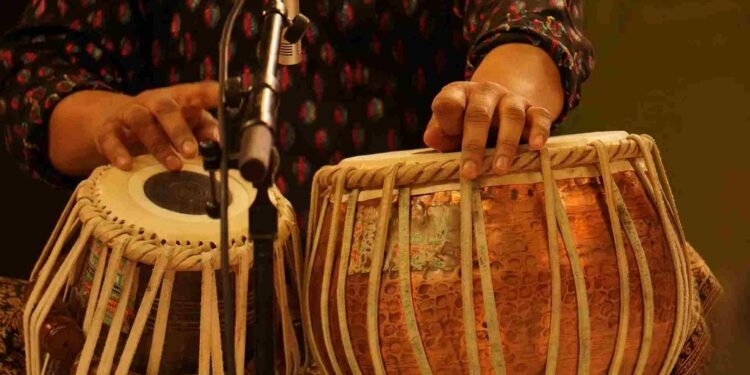“3 Idiots”: Revolutionizing Indian Music Education – Beyond Rote Learning and Rigid Traditions

“Aal izz well!” Remember the iconic phrase from the Bollywood blockbuster “3 Idiots”? While the film tackled the flaws in India’s education system, its message resonates deeply with the realm of music education as well. For decades, traditional Indian vocals schools have adhered to a rigid, rote-learning approach, often stifling creativity and hindering a student’s true potential. However, a new wave of innovative educators and institutions are breaking free from these conventions, embracing a more holistic and learner-centric approach.
The Traditional Gurukul System: A Revered Legacy with Limitations
The traditional “gurukul” system, where students live with their guru (teacher) and learn through intensive one-on-one instruction, has been the cornerstone of Indian classical music education for centuries. This immersive approach emphasizes discipline, dedication, and a deep understanding of the art form.
While the gurukul system has produced many legendary musicians, it also has its limitations. The emphasis on rote learning and strict adherence to tradition can sometimes stifle creativity and discourage experimentation. Moreover, the system’s exclusivity and high cost often make it inaccessible to many aspiring musicians.
The Rise of Modern Music Schools: A Paradigm Shift
In recent years, a new breed of music schools has emerged, offering a refreshing alternative to the traditional gurukul system. These institutions, inspired by modern pedagogical approaches, strive to create a more inclusive and engaging learning environment.
- Focus on Individuality: Modern music schools recognize that every student is unique and has different learning styles and preferences. They offer personalized instruction, allowing students to progress at their own pace and explore their individual musical interests.
- Blending Tradition and Innovation: While respecting the rich heritage of Indian classical music, these schools also encourage students to experiment with different genres and styles. They offer Indian vocals courses that incorporate elements of Western music theory and techniques, fostering a more versatile and adaptable musical skillset.
- Technology Integration: Modern music schools leverage technology to enhance the learning experience. Online platforms, interactive tools, and recording studios provide students with access to a wider range of resources and opportunities for collaboration.
- Holistic Development: Beyond technical skills, these schools focus on the holistic development of musicians. They offer courses in music theory, history, composition, and performance, nurturing well-rounded artists who can thrive in the modern music industry.
The Emergence of Western Vocals Courses:
The growing popularity of Western music in India has also led to the rise of Western vocals courses offered by various institutions. These courses cater to a wide range of interests, from pop and rock to jazz and blues. They focus on developing vocal techniques specific to Western music styles, such as belting, vibrato, and vocal improvisation.
Choosing the Right Path:
If you’re an aspiring musician in India, you’re fortunate to have a plethora of options to choose from. Whether you’re drawn to the traditional gurukul system or prefer a more modern approach, the key is to find a music school or course that aligns with your individual needs and aspirations.
Here are some questions to consider when choosing a music school:
- What are your musical goals?
- What is your preferred learning style?
- What is your budget?
- Do you want to learn Indian classical music, Western vocals, or a combination of both?
- Are you looking for online or offline classes?
By carefully considering these factors, you can find the perfect music school that will help you unleash your inner musician and embark on a fulfilling musical journey. Remember, music education should be an enjoyable and enriching experience, not a rote learning exercise. So, break free from traditional constraints, embrace innovation, and let your creativity soar!






